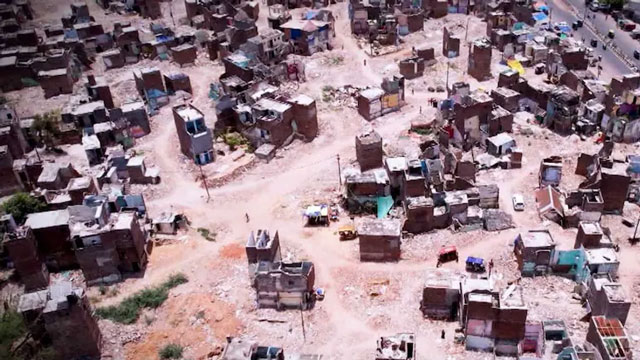Daijiworld Media Network – New Delhi
New Delhi, Aug 2: In a major relief for slum dwellers across the national capital, Delhi Chief Minister Rekha Gupta on Friday directed all land-owning agencies, including the Delhi Development Authority (DDA) and Indian Railways, to halt any slum demolitions unless alternate housing is provided to residents.
“No slum dweller in Delhi will be harassed anymore,” asserted CM Gupta, warning that her government would not tolerate evictions without proper rehabilitation.

The Chief Minister also unveiled a massive housing revival project. Nearly 50,000 flats constructed under the Jawaharlal Nehru National Urban Renewal Mission (JNNURM) and lying unused on the city’s outskirts for years will now be renovated and allotted to eligible families. The government plans to refurbish these units using over Rs 700 cr of unutilised funds and distribute them under the Pradhan Mantri Awas Yojana – Urban (PMAY-U).
“It is a matter of satisfaction that around 50,000 flats built years ago in the outer areas of Delhi will now be allotted to the poor,” said CM Gupta.
Officials confirmed these flats were never handed over and had deteriorated over time. Now, they will serve as part of the government’s push to ensure every evicted family is housed before any demolition.
“No eviction for development or infrastructure projects will take place unless alternate housing is provided,” CM Gupta reiterated. She further hinted that the current policy governing slum clusters may soon be amended to better safeguard housing rights, even suggesting legal intervention if necessary.
“If required, the government will amend the existing policy and approach the court to protect slum dwellers,” she said.
Launching a scathing attack on previous regimes, Gupta accused both the Congress and the Aam Aadmi Party (AAP) of neglecting slum communities.
“The Congress established slum colonies in the names of leaders like Indira and Rajiv Gandhi but never provided any facilities. AAP made big promises but delivered nothing,” she alleged. “There was no clean water, no roads, no drainage—only suffering. They pushed residents toward addiction instead of development.”
Promising a new era of inclusion, Gupta stated, “My government will make the residents of these hundreds of slum clusters true citizens of Delhi, so they too can take pride in their identity.”
Delhi has 675 slum clusters housing an estimated 3.06 lac families. However, fragmented land ownership remains a challenge—50% of the clusters lie on DDA land, 23% with PSUs or private entities, and the rest fall under MCD, DUSIB, or other agencies. South-East Delhi leads with 144 clusters, followed by North Delhi with 109, while North-East Delhi has the fewest at just six.
Many families still await legal protection, with pending surveys and disputes delaying allotments. While Gupta’s announcement brings hope, its real test lies not in speeches but at ground zero—where bulldozers have long overshadowed blueprints.